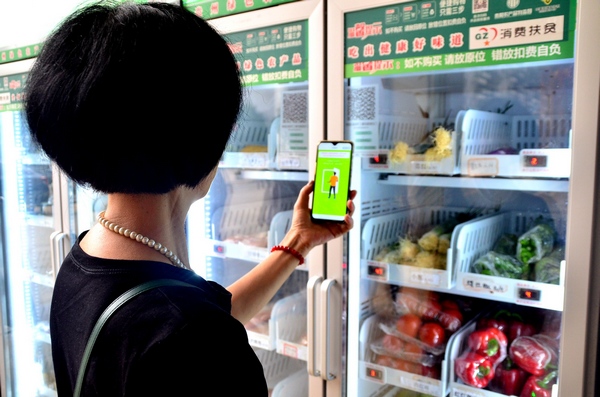Intelligent vending machines benefit Guiyang citizens

A customer scans a QR code on the machine to buy fresh vegetables. [Photo/people.cn]
Guiyang, capital of Southwest China's Guizhou province, recently installed 127 self-service vending machines -- providing over 100 kinds of vegetables and fruits for citizens from 70 communities in the city's districts of Wudang, Baiyun, Yunyan, Nanming and Guanshanhu.
After scanning the QR codes on a vending machine, the machines' door will open and customers can see the photos, names and prices of the machine's products on a page on their smart phones.
By picking up the products and closing the door, the smart phone page will show that the product's weight and automatically charge the bill.
The vending machines first went into use in January, as a measure for the novel coronavirus prevention and control, enabling the keeping of social distances and avoiding contact between people.
But the machines subsequently became popular for their convenience compared with traditional markets.
All the products in the machines are produced in Guizhou's poverty-stricken counties and districts. Since the machines are launched, they have generated over 14 million yuan ($2.06 million) of income for impoverished people.
Customers can scan the QR codes to learn, among other things, a product's trademark certification, food origin and its distribution information.
The products are independently packaged and transported within cold chain storage. They will stay on the shelves for no more than 24 hours and staff will also adjust the temperature of the machines to keep the products fresh.
In addition to staff members, the machines are also managed by an online system. Depending on the stock, the system can inform logistics departments to replenish them or offer discount promotions.
Presented by China Daily.
黔ICP备05001922号
All Rights Reserved.
Presented by China Daily.
黔ICP备05001922号



